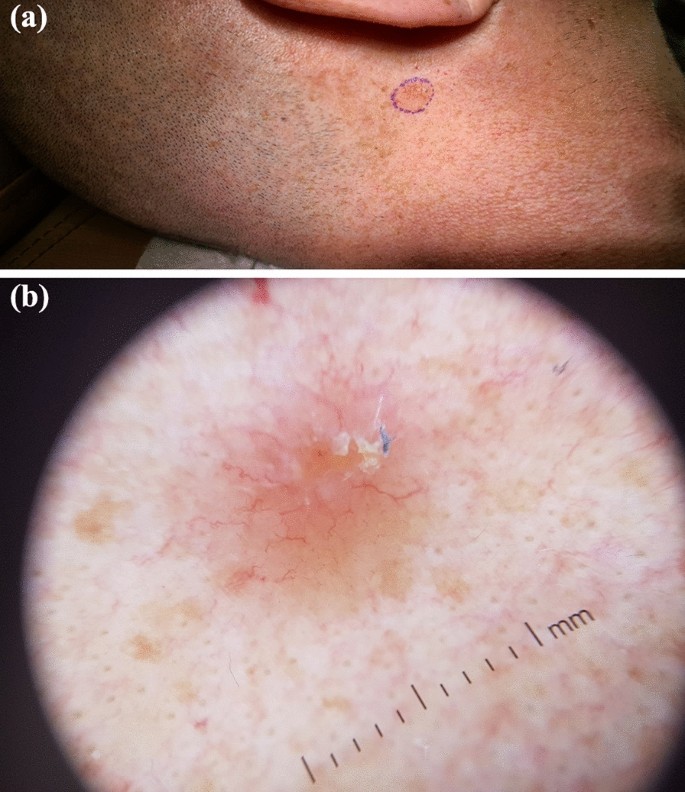
The current treatments for BCCs are generally invasive and do not prevent the growth of new tumors. The invasive treatments include surgical excision and electrodesiccation and curettage. Radiation therapy, X-rays, and Mohs micrographic surgery. Topical medications such as imiquimod are also available. These are absorbed through the skin and have a cure rate of 80 to 90%.
Retinoids have long been a part of skin cancer therapy. Pan-retinoic acid receptor agonists, which mimic the endogenous ligand all-trans retinoic acid, are now approved by the FDA for advanced BCC. These medicines block a pathway in the cells called "hedgehog" that is thought to be involved in BCC development. There are also systemic retinoids and nonspecific retinoid X receptors.
Retinoids have a long history in skin cancer treatment. Both retinoic acid and a derivative known as "pan-retinoic acid" mimic the "hedgehog" signaling pathway, which is essential for BCC development. Retinoids are highly effective at suppressing the growth of BCC and are therefore approved for use as a prophylactic against BCC. They have an added advantage over conventional chemotherapy.
The two oral medications for advanced BCC have recently been approved by the FDA. They are both targeted drugs that are taken by mouth. Both drugs target the "hedgehog" signaling pathway, which is implicated in BCC development. Both of these medications are referred to as "targeted" therapies. They work by blocking the activity of a protein in the body called p53.
Another drug for advanced BCC is called azathioprine, which has been used for several years for preventing and treating this cancer. It is a drug that works by blocking the "hedgehog" signaling pathway, which is responsible for the development of BCC. It is important to note that azathioprine does not cause any side effects. However, this drug is commonly prescribed for aggressive BCC.
There are a variety of retinoid drugs for advanced BCC. The first two are based on the activity of a single receptor. They are systemic and can affect a variety of pathways. Both of these medications are effective against advanced BCC. There are other types of prescription medicines that are being developed. The following are examples of the medications used for a variety of BCC. These include azathioprine and tacrolimus.

In addition to azathioprine, other drugs for advanced BCCs have been approved for use. These medications can be used in combination to treat advanced BCC. Aside from azathioprine, cyclosporine, and mycophenolate mofetil are the most common drugs for the treatment of this cancer. The use of these medications is not associated with an increased risk of developing SCC.
Retinoids are also powerful drugs for progressive CCC. These drugs are taken orally and have a preventive effect against the disease. They are also known to reduce the occurrence of disease. They have several side effects, including skin irritation and inflammation. There are two types of anti-inflammatory drugs for BCC: AZT. One such drug is azathioprine.
The Food and Drug Administration (FDA) has approved two oral medications for the treatment of advanced CCC. These are systemic retinoid agonists that are taken by mouth. They work by blocking the hedgehog signaling pathway. A number of other agents are also approved for progressive CCC. It is difficult to determine which drug is best for your condition, but there are many drugs available to treat this disorder. None of these medicines have side effects.
Some medicines for basal cell cancer are given to people who have no other symptoms. Although they can reduce the size of tumors in some patients, they have not been shown to prolong a person’s life. Although this type of treatment is not suitable for everyone, it is often the only treatment option for advanced CCC. It is important to read the Medication Guide before starting any new medicines. Complete prescribing information and medication guidance on a health website is essential for the diagnosis and treatment of CCC Handaldok Artikel Tentang Kesehatan.
New anti-BCC drugs target the Hh pathway. Hh pathway inhibitors inhibit cell proliferation and promote apoptosis, which reduces the risk of CCC. This therapy is also effective for patients with localized BCC. While it may be harmful to a pregnant woman, it is generally safe for both men and women. While it is considered a safe and effective treatment for most cases of CCC, there is a high risk of toxicity.